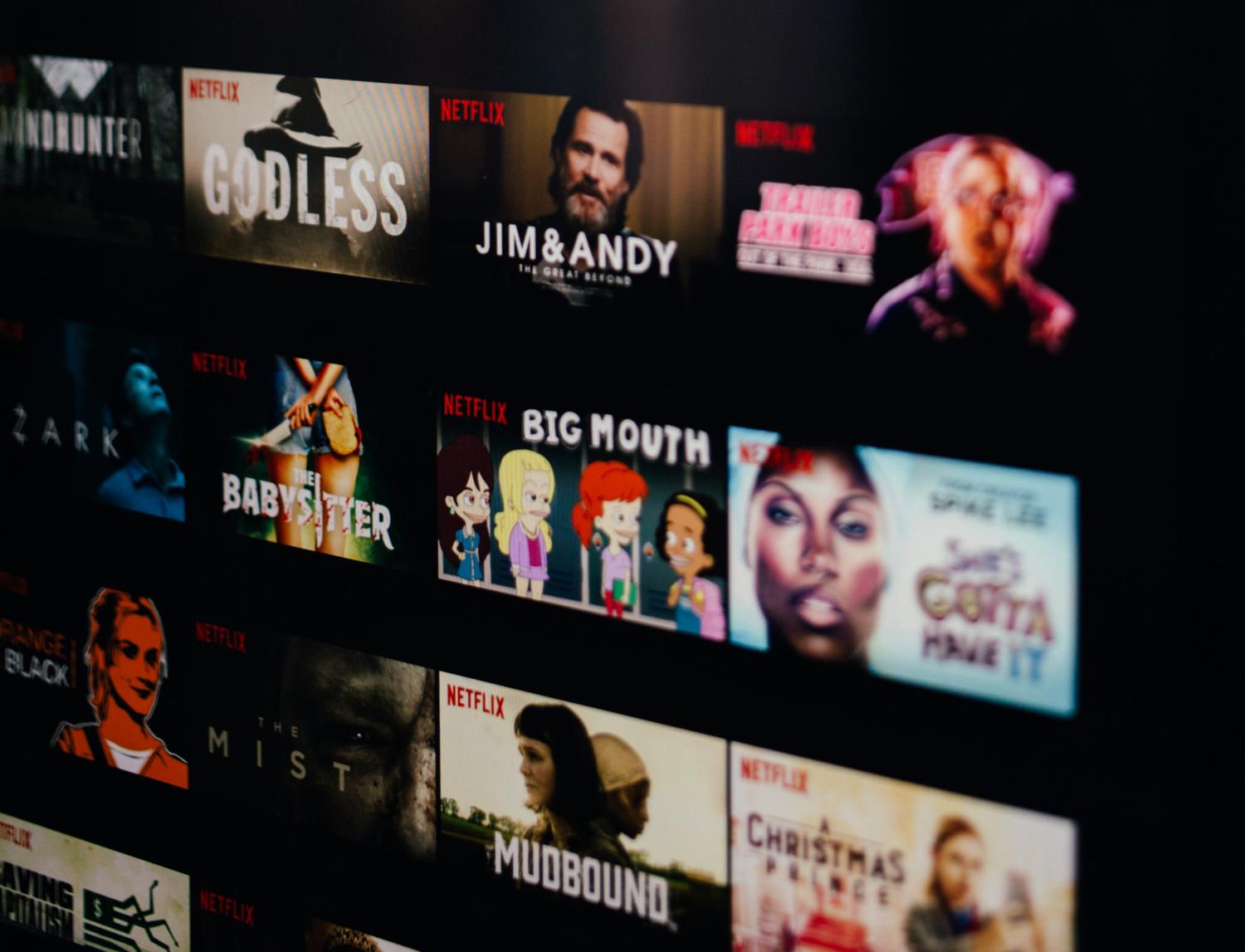
Streaming Towards Better Content
Photo credit: Charles Deluvio
Netflix, the online service that provides on-demand streaming entertainment, has expanded over the years in response to the changing habits of viewers. The company’s early online offerings consisted solely of licensed films and TV shows created by other production companies. However, this has slowly changed with the amount of original, exclusive content they have produced. The company’s revenue stream based on subscriptions, not advertisements, allows for greater flexibility and experimentation when creating TV shows and films. This also means that it is constantly trying to attract and keep an audience of clients by offering original content. Furthermore, increasingly expensive licensing contracts with other production companies for their content is lowering their profits and making producing their own material more appealing. This business model has in turn made Netflix one of the best producers and creators of TV series and films.
One of the appeals of Netflix is that there are no advertisements. Clients pay a monthly subscription fee to access a variety of shows and films. This has had a positive effect on the quality of the original content that the company showcases. Since subscriptions guarantee a relatively regular amount of revenue, the company can afford to allow shows to be more experimental and daring in order to build or find an audience over time. Traditional cable networks make huge revenues from charging marketers a premium to have their advertisements air between breaks. If a show’s ratings are low, the less money networks can charge, thereby lowering the amount of revenue that show can generate from marketers. This can play a deciding factor when renewing, canceling or making drastic changes to a show. Networks vying for ad money are more likely to adhere to generic models of television programming which can diminish the authenticity and creativity of a show.
The challenge facing all media companies is how to attract viewers. Since the company’s revenue is subscription based, they have a motivation to frequently update their service with quality content, be it their own or licensed from other companies. As Netflix’s competition has grown over the years, it has sought to differentiate itself. One way it has achieved this is by offering exclusive original content. Series such as Orange is the New Black and Stranger Things have been praised by viewers and critics alike and are examples of what the company is trying to achieve: must-see television that will entice people to subscribe. Netflix’s Chief Content Officer, Theodore A. Sarandos, has said that the company aims to increase original content and target it more strategically, “Not a show or not a new show for everybody, every two and a half weeks, but a new show for segments of the viewership every couple of weeks.”
Netflix’s purchases licensing rights from content providers such as Hollywood studios in order to stream their shows and films for a predetermined amount of time. As the company has grown, so to has the cost of licensing fees. As writes Felix Salmon for the news agency Reuters, “The ever-increasing cost of licensing is a huge issue for Netflix, and it’s the reason why its business model is a very tough one: any time that Netflix builds up a profit margin, studios will simply raise their prices until that margin disappears.” Therefore, rising licensing fees are an important factor in the company’s drive to offer original content in order to lower cost in the long term and become more independent. However, for this strategy to work it needs to make sure the original content they produce is high quality and desirable or else they will not attract new viewers or be simply known as a service providing content created by others. This is something the company would like to move away from as evidenced by its investment in original productions in markets around the world. Closer to home, it was announced in the fall of last year that Netflix will be investing $500 million over five years in Canadian productions. This is part of a larger trend that has seen foreign investment in Canadian productions increase over the past few years to $4.7 billion—double the amount in 2013.
Netflix has slowly transformed itself from its original service of providing mail order DVD rentals to a creator of must-see television series. No advertisement, reliance on subscriptions revenues, increased competition and licensing fees have all fueled the company’s need to differentiate itself through original content. It is for these reasons that Netflix’s business model has allowed it become one of the best purveyors of quality TV shows and films.













